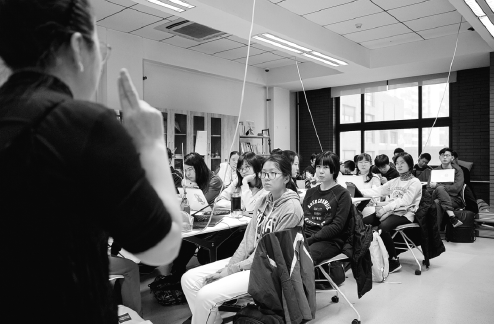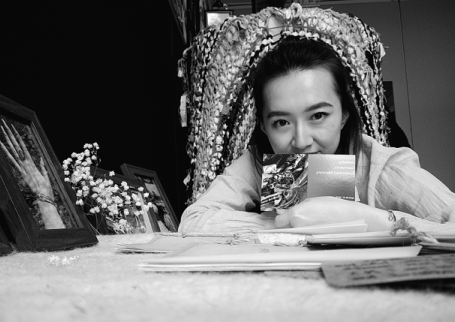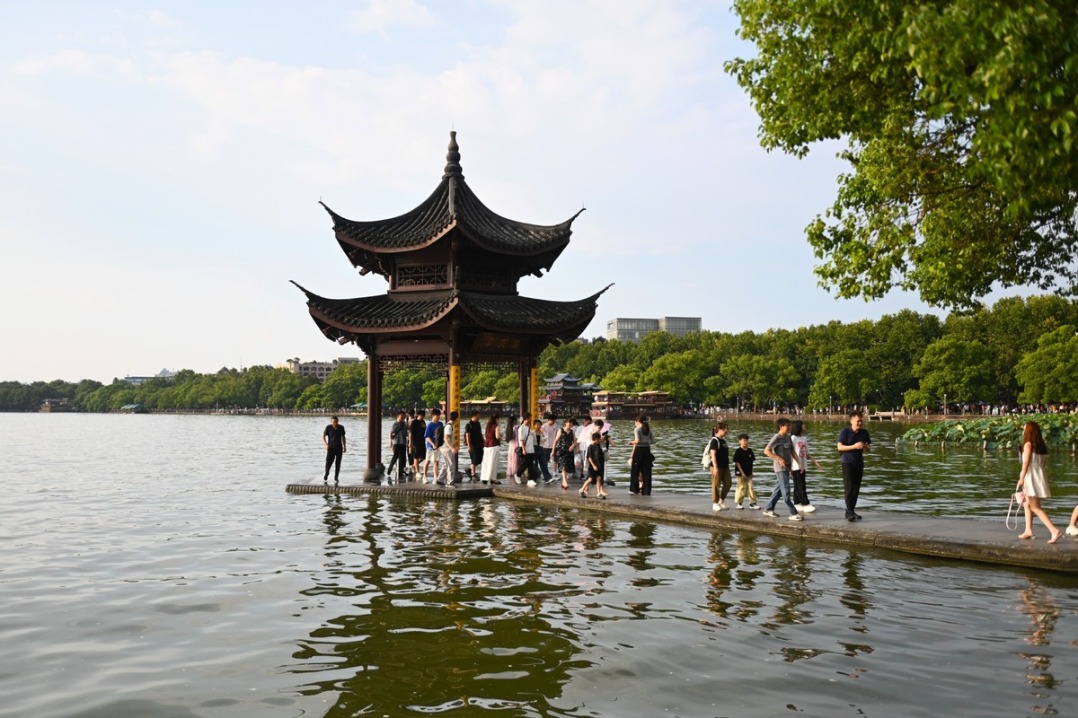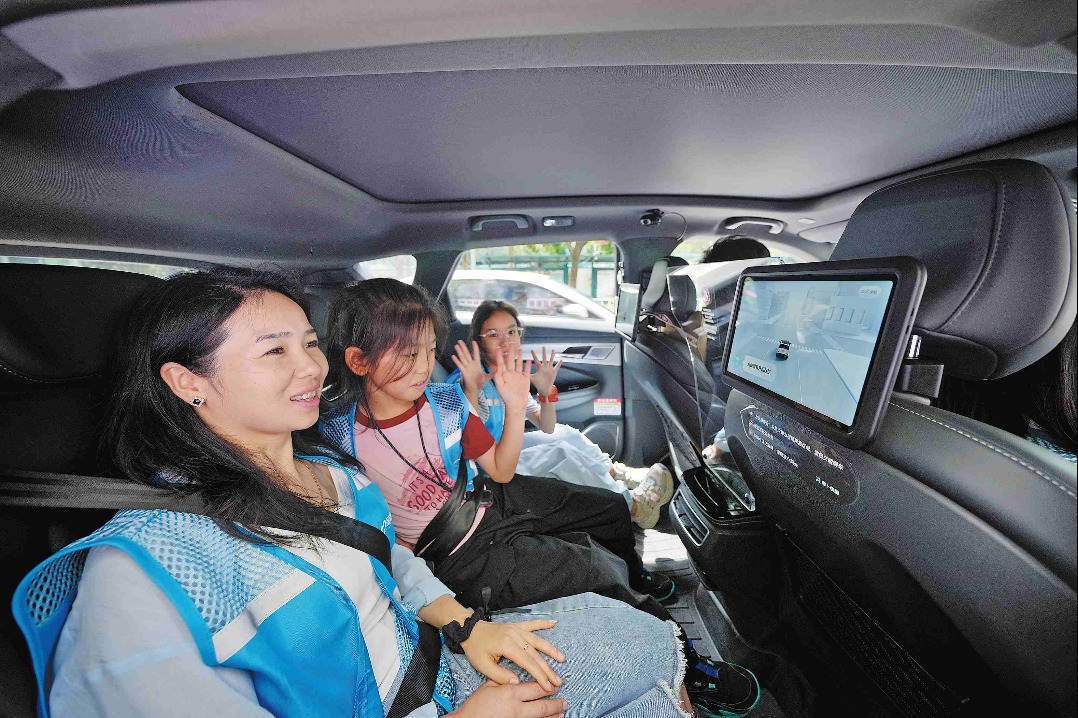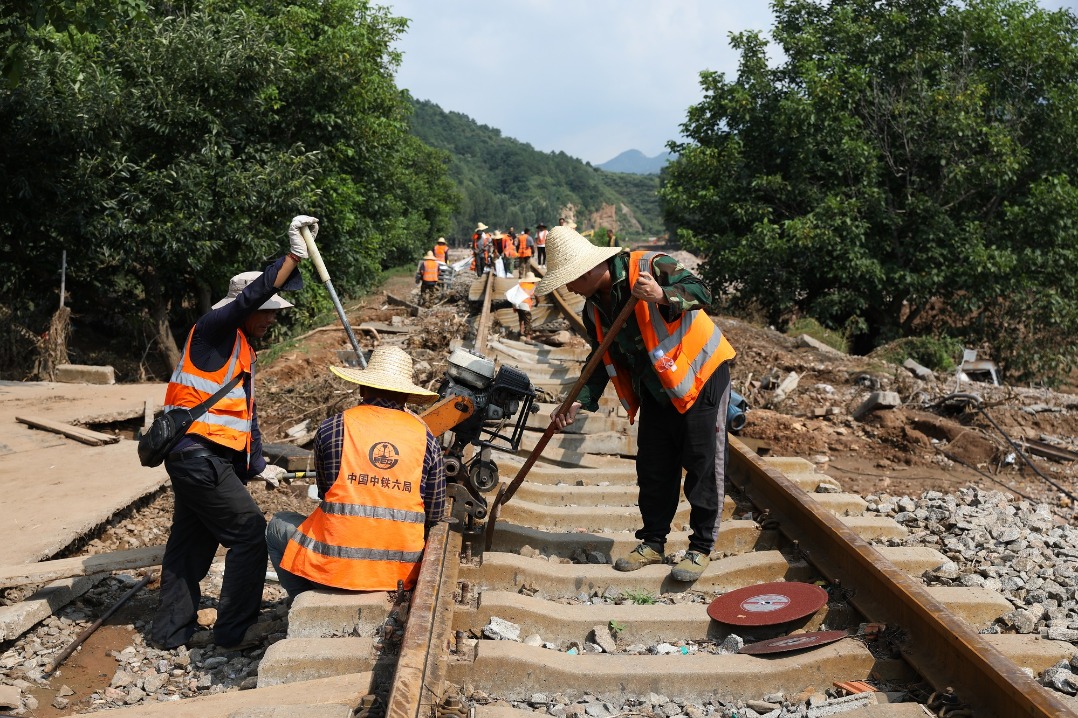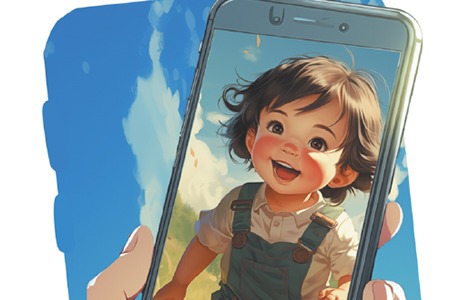A tale worth telling
Project records first-hand spoken accounts of COVID-19 outbreak and helps youngsters see both individual and collective experiences, Xing Wen reports.

The lexicon of change. Phrases with which we were not familiar just a few months ago have now become part of our everyday language. Face masks, COVID-19, confirmed cases, social distancing and lockdowns. The images they conjure up are etched into our memory.
Since late January, Yu Tianrui, who is in her 20s, has been in contact with, and talked to, people from different countries and various walks of life about their personal experiences and feelings during this historic time.
"As the pandemic started to rage on, like many others, I was startled to see the dramatically increasing number of confirmed cases every day," recalls Yu, who is taking a gap year after graduation last year from Columbia University's Oral History MA Program. "I was anxious and wanted to help but didn't know how."
An idea then hit her. Why not use her specialty to highlight and preserve for generations to come the hardships people went through along with some of the touching moments.
She then initiated a COVID-19 oral history project. She did not know what to expect, but furthest from her mind was that a teacher from the Affiliated High School of Peking University would contact her and invite her to teach 68 Beijing high school students how to conduct the same oral history project.
Oral history is a field of study that gathers, preserves and interprets the voices and memories of people and communities that participated in past events. It reflects personal, subjective opinions offered by the narrator, and can be used to gain a valuable insight into history.
Among the people she interviewed was a reporter who stayed in Wuhan, the hardest hit city in China, for more than 80 days to report on how people in the city fought the virus. Not all the interviews were with people in China. One was with a Chinese person working in the luxury sector in Italy. Another was a Beijing resident who had to rethink his future plans after losing his job as a teacher at an online education provider during the outbreak. There was also the daughter of a couple who were frontline medical professionals in Wuhan.
Generally, they were questioned about how their lives had been affected during the outbreak, how their work had changed and how they reflected on the crisis.
"I hope the various perspectives offered by the narrators might help people better understand each other and therefore create harmony and cohesion in these tough days," says Yu.
She adds that after readers notice that most of the interviewees, though from different backgrounds, shared similar anxieties when initially facing the pandemic, they may later feel a sense of relief and empathy, having established a better understanding of others.
Yu has reached out to nearly 40 interviewees.
She says she found that all have things in common. They stressed the importance of saving money, finding reliable information and strengthening people-to-people relations.
Yu also plans to conduct follow-up interviews to gauge how perceptions and understandings about the pandemic changed.
In February, Sun Ying, an instructor on the elective course of oral history from the Affiliated High School of Peking University, got in touch with Yu and invited her to be a guest teacher for the elective course. The two quickly hit it off, as Sun had also been thinking about encouraging her students to record stories related to the pandemic.
In March, the 68 students in the oral history class joined Yu in the project.
They formed 27 small groups to choose interviewees, do preliminary research, prepare interview guide sheets and learn how to improve their questioning technique while conducting interviews.
To date, the class attendees have interviewed around 45 people, including foreign students who are studying in China, Wuhan natives, and medical practitioners.
The influence on teens
Oral history, an interdisciplinary study that highlights communication between people, will help the students grow to be more open-minded and adept at soul searching, Sun points out.
She encourages the youngsters to feel free to interview anyone in the class and listen to their peers' experiences, especially about the days when they were confined to their homes.
Sun also asked students to write a brief autobiography to inspire them to reflect on their own past, in the hope of "creating an atmosphere where the students are willing to open themselves up and express themselves".
Sun says the key value of the course lies in heart-to-heart talks. "We can understand how one's past affects the present and how our collective memory of a particular time has been formed.
"When discussing a certain topic, they like to quote the classics rather than express their own ideas," says Sun, adding that she hopes the course will help them think more originally.
Wu Rui, a 15-year-old student from the school, chose to attend the elective course and volunteered to be Yu's assistant, helping to double-check the interview transcriptions.
Rui has also been asked to read through pages of interviews and highlight interesting phrases or ideas.
Later, Rui wrote a review essay from the transcribed materials.
In class, Rui and other students were also asked to appreciate classic oral history works, such as Voices from Chernobyl: The Oral History of a Nuclear Disaster, and share their reviews with classmates and the instructors.
Rui says her "writing skills have improved", and "I started to enjoy reading more into a text to analyze, synthesize, and evaluate the information".
"For me, the detailed experience at an individual level turns out to be more touching than the general tale of major events of the past," Rui says.
Another revelation she got from taking the course is that "to ask a question that would prompt thoughtful, personal answers is not as easy as I imagined".
To encourage interviewees to vocalize their thoughts, Rui says she confided her own stories "to strike up a rapport with them".
Taking the course has helped students like Rui to improve in some aspects. Another oral history class attendee, Ye Wenyi, used to focus on herself when she communicated with others and didn't care much about whether her ideas were understood or not by listeners.
"After the course, I began to consciously adjust my usual way of conversing with others," says the 17-year-old. "Now I tend to use more approachable expressions to deliver my ideas logically, ensuring that I can be well understood by listeners."
The students were asked to interview their family members and write down anecdotes of their life stories.
Ye interviewed her parents and grandmother and found that the talks have brought them much closer.
"Most of the time, they just talked with me about domestic trivialities, without mentioning their childhood stories or revealing their inner selves," says Ye, who thanks the homework for providing a new channel to build better bonds.
However, in the hour-long interview, she was surprised to learn more about her loved ones, like the fact that her father was once nearly swept away by a flood, and bitter, sad stories told by her grandmother about World War II.
"Now I feel that I know more about my family," Ye says, who adds that she also hopes one day she can initiate oral history projects as well, having people from different groups, such as domestic violence victims, speak up, convey and record their experiences and thoughts.
